Rapid Quantification of Total IgG in 1 Hour

Immunoglobulin G (IgG)
Immunoglobulin G (IgG) is the most prevalent antibody in human blood and plays a critical role in the immune system. As one of the five major immunoglobulins, IgG is produced by B lymphocytes and serves as a key factor in the body's long-term immune memory following initial infections.
IgG is composed of four subclasses: IgG1, IgG2, IgG3, and IgG4. Due to structural differences, these subclasses exhibit varying affinities for different types of antigens and play distinct roles in immune responses. For example, IgG1 and IgG3 are typically involved in clearing pathogens from the bloodstream, while IgG2 is more active in combating parasitic infections. IgG4 may play a regulatory role in certain autoimmune diseases.
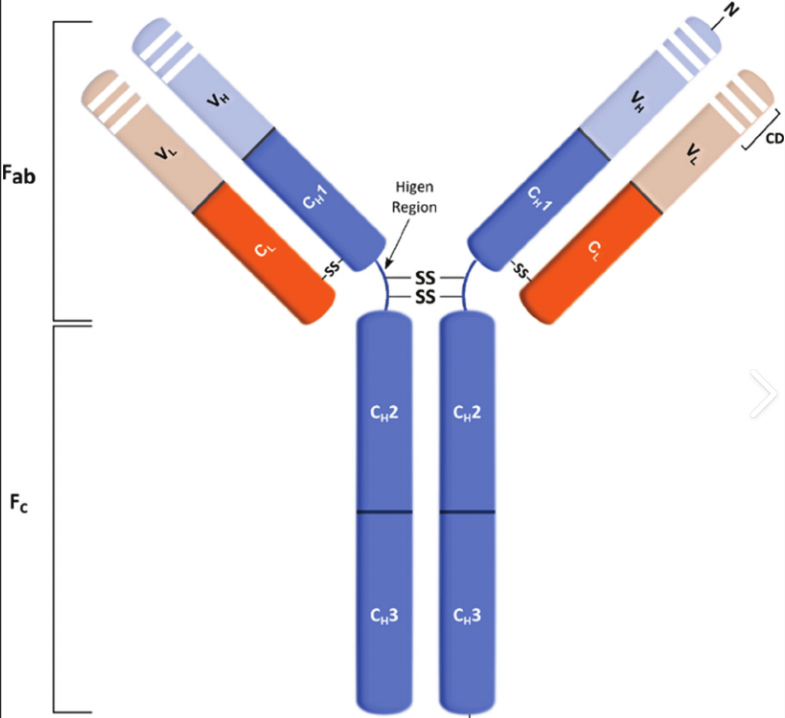
Figure 1: Structure of IgG
Role in the Immune System
IgG is a critical component of the adaptive immune system, produced by B cells after initial infection to establish immune memory. IgG specifically recognizes and binds to antigens on the surface of pathogens, identifying and localizing foreign substances to trigger further immune responses.
Applications of IgG Detection
-
Cell Line Screening: In the biopharmaceutical industry, screening for cell lines that efficiently express specific antibodies is crucial for ensuring the quality and production capacity of antibody drugs. This step is foundational for large-scale antibody drug production.
-
Preclinical Pharmacokinetic (PK) Blood Concentration Testing: To evaluate the absorption, distribution, metabolism, and excretion (ADME) of drugs in vivo, rodent models such as mice are commonly used. This helps determine optimal dosing regimens and provides guidance for clinical use.
-
Vaccine Development/Production/Clinical Trials: IgG is the primary circulating antibody. Detecting IgG levels is essential for assessing the immunogenicity of vaccine candidates, evaluating vaccine safety and efficacy, and monitoring long-term protective effects.
Thus, having a rapid and highly sensitive IgG detection kit is of significant importance for accelerating drug development and production processes.
OneStep ELISA Kit
Starter has independently developed the OneStep ELISA Kit, which enables IgG detection in just 1 hour. The kit is now available for human, mouse, and rabbit species, providing high-quality, rapid detection products for researchers in immunology-related fields.
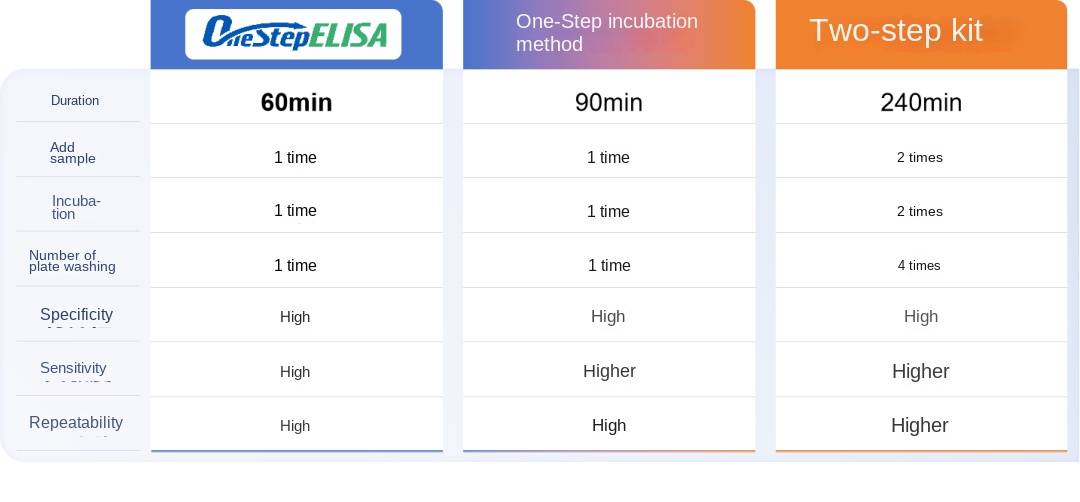
Key Features
-
High Sensitivity and Broad Detection Range: Suitable for IgG detection in serum, plasma, and cell culture supernatants.

Detection Principle:
The OneStep ELISA Kit delivers results within 1 hour, eliminating the need for overnight coating or repeated washing. The kit employs a plate-coated tag antibody capture sandwich technique with high sensitivity, paired with highly specific recombinant monoclonal antibodies. This allows the formation of an antibody-analyte sandwich complex in solution in a single step, with one wash step to eliminate matrix effects, enabling accurate protein quantification.
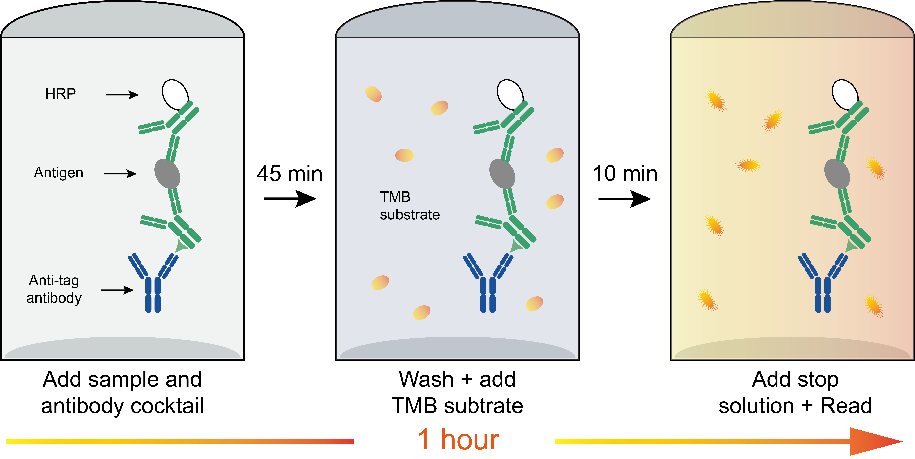
Additional Parameters (Example: Human IgG (Total) OneStep ELISA Kit):
-
Specificity: Specifically recognizes human serum/plasma samples, with no cross-reactivity to rat, mouse, or bovine samples.
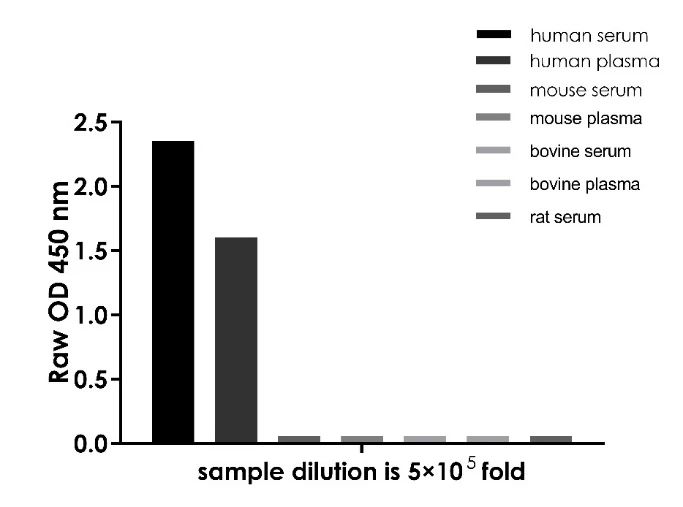
-
Linearity: Testing of the same sample at different dilution gradients yields results within the expected range.
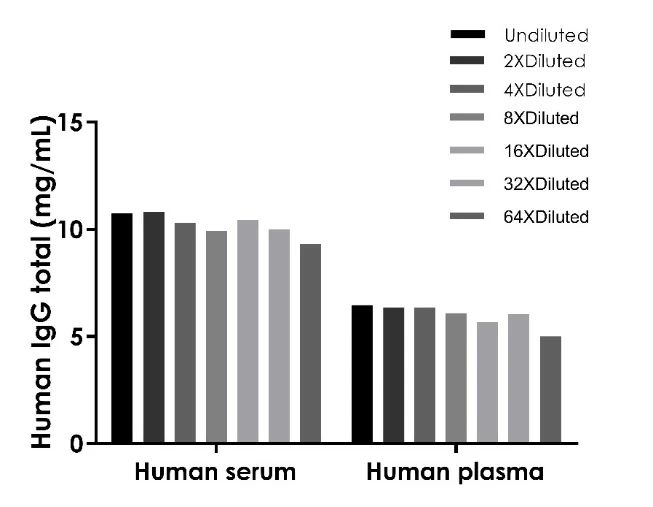
-
Competitor Comparison: Compared to a leading imported product, Starter's kit demonstrates comparable sensitivity.
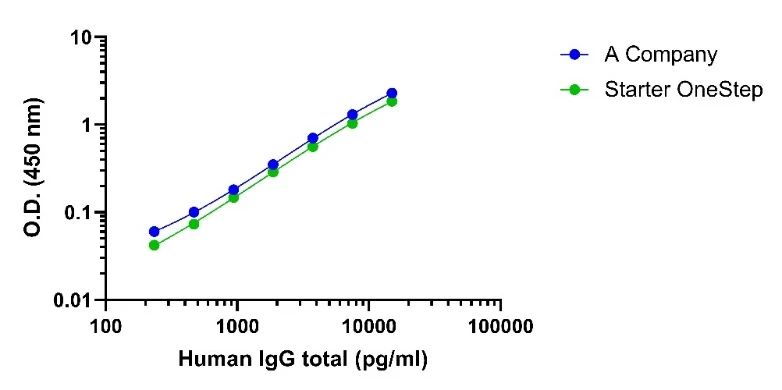
Product Information
| Gatalog Num | Product Name | Product Parameters | Price |
| S0C3008 | Mouse IgG (Total) OneStep ELISA Kit | $500 | |
| S0C3007 | Human IgG (Total) OneStep ELISA Kit | $500 | |
| S0C3006 | IL-11 HS ELISA Kit | $4,270 | |
| S0C3004 | Human IL-6 OneStep ELISA Kit | $500 | |
| S0C3003 | Human IL-13 OneStep ELISA Kit | $500 | |
| S0C3005 | Human IFN-γ OneStep ELISA Kit | $500 | |
| S0C3002 | Rabbit IgG OneStep ELISA Kit | $500 | |
| S0C3001 | Human IL-2 OneStep ELISA Kit | $500 |




